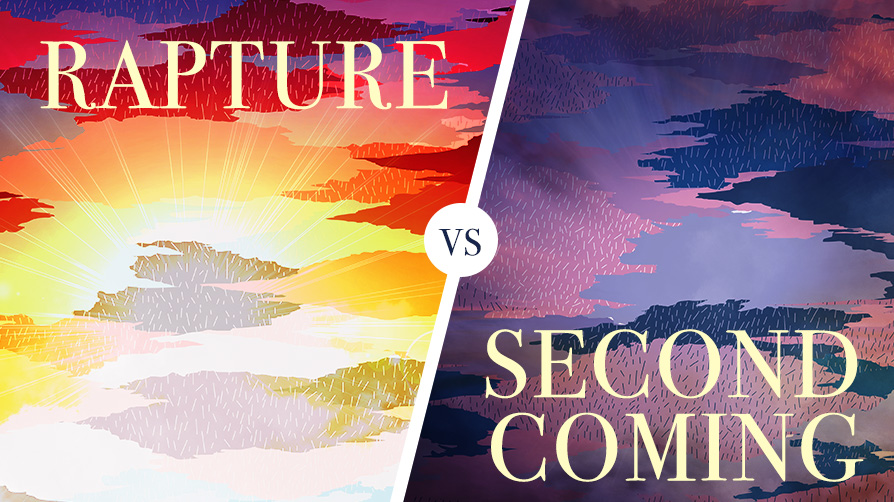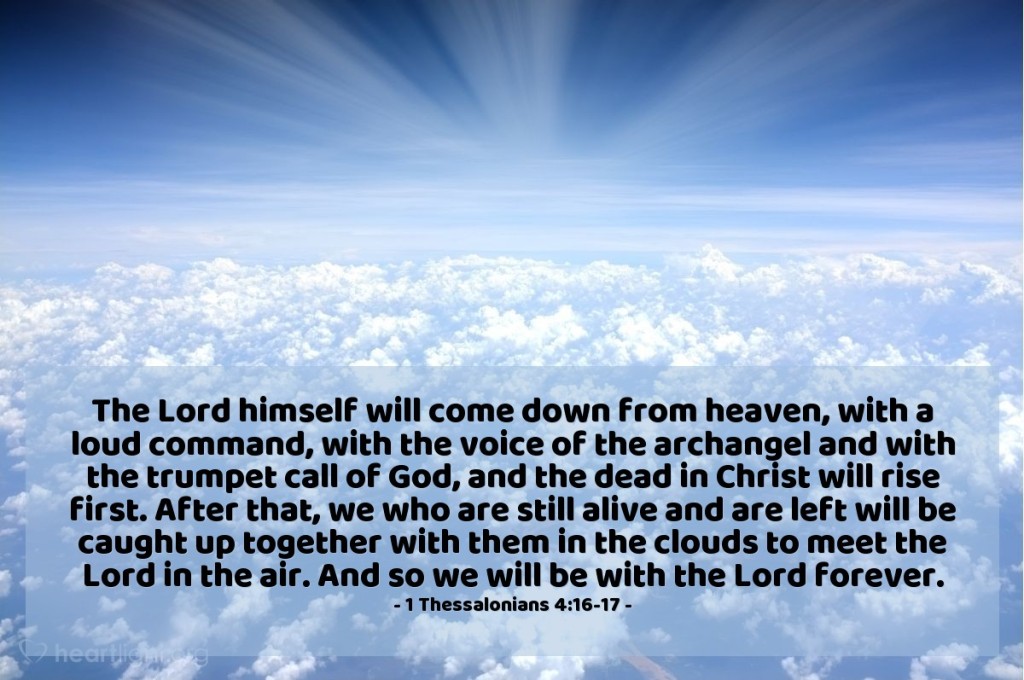The asserted differences consist of:
- In the Rapture, believers meet the Lord in the air (1 Thes 4:17); in the Second Coming, Christ comes to the earth with His saints (Rev 19:14).
The Greek verb for “meet” is apantēsis, used when VIPs made a formal visit, and a welcoming party went out to meet and escort him back to their city or house. This word occurs three times in the NT, the other two being:
- Mt 25:6 But at midnight, there was a shout, ‘Behold, the bridegroom! Come out to meet him.
- Acts 28:15 And the brethren, when they heard about us, came from there as far as the Market of Appius and Three Inns to meet us. And when Paul saw them, he thanked God, and took courage.
In Mt 25, the wise virgins were ready and returned to the wedding feast with the bridegroom. In Acts 28, the brethren came from neighboring towns to accompany Paul to Rome. So, my interpretation of 1 Thes 4:17 is those believers went to meet the Lord in the air, then returned with Him to earth. It was one single event, not two separate incidents.
2. The Rapture is before the Tribulation (1 Thes 5:9; Rev 3:10); the Second Coming is after (Rev 17-18).
First, what do the passages say?
- 1 Thes 5:9 For God has not destined us for wrath, but for obtaining salvation through our Lord Jesus Christ,
- Rev 3:10 Because you have kept the word of My perseverance, I also will keep you from the hour of testing, that hour which is about to come upon the whole world, to test those who dwell on the earth.
- Rev 17-18 Please refer to the Bible.
Pre-tribulation, mid-tribulation, and pre-wrath supporters claim that “not destined us for wrath” and “keep you from the hour of testing” imply that believers will be removed or raptured before the tribulation or wrath. That is one possible assumption. Another interpretation is that God will keep believers safe even as they go through tribulations all around them, as when the Lord made a distinction between Israel and Egypt during the ten plagues (Ex 8:22, 9:4, 26, 10:23, 12:13). The latter is God’s pattern, not the former. Throughout biblical and church history, God protected and delivered His people, not by removing them from the scene, but as they underwent trials.
- The Rapture is God delivering believers from the earth (1 Thes 4:13-17, 5:9); the Second Coming is God taking away unbelievers to judgment (Mt 13:41-42, 24:40-41, Rev 19:20-21). I will cite only those Rapture verses not already quoted above. The Second Coming passages are listed in full.
- 1 Thes 4:13-15 But we do not want you to be uninformed, brethren, about those who are asleep, so that you will not grieve as do the rest who have no hope. For if we believe that Jesus died and rose again, even so, God will bring with Him those who have fallen asleep in Jesus. For this, we say to you by the word of the Lord, that we who are alive and remain until the coming of the Lord, will not precede those who have fallen asleep.
- Mt 13:41-42 The Son of Man will send forth His angels, and they will gather out of His kingdom all stumbling blocks, and those who commit lawlessness, and will throw them into the furnace of fire; in that place, there will be weeping and gnashing of teeth.
- Mt 24:40-41 Then there will be two men in the field; one will be taken, and one will be left. Two women will be grinding at the mill; one will be taken, and one will be left.
- Rev 19:20-21 And the beast was seized and with him the false prophet who performed the signs in his presence, by which he deceived those who had received the mark of the beast and those who worshiped his image; these two were thrown alive into the lake of fire which burns with brimstone. And the rest were killed with the sword which came from the mouth of Him who sat on the horse, and all the birds were filled with their flesh.
The Second Coming verses indicate God judging unbelievers, the Antichrist, and the false prophet, but do they prove that it is separate from the Rapture? My answer is NO. The difference in focus is easily explained by the respective context. In 1 Thes 4, Paul was comforting the Thessalonian Christians who thought the dead in Christ had missed the resurrection and were grieving over them. So, his emphasis was on explaining the sequence of the Rapture, not the details of Christ’s return. In Mt 13, 24, and Rev 19, Matthew and John were describing the end times and final judgment, so the focus was on the Lord judging the unbelievers.
What I find surprising, however, is that supporters of the separate incidents missed “the sign of the Son of Man.” As I have demonstrated, this can be none other than resurrection. In other words, the resurrection and rapture of Christians take place when Christ returns to judge the world, and the two are simply two sides of the same event!
(To be continued)








